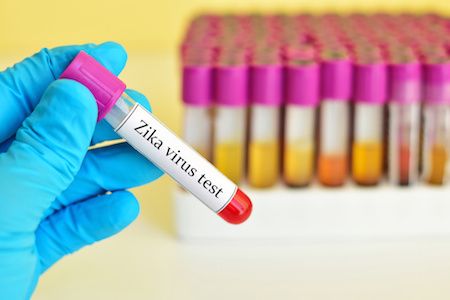New York City Sees First Female-to-Male Sexual Transmission of Zika Virus
The Zika virus can be spread by sexual contact with an infected woman, the US Centers for Disease Control and Prevention announced today. The finding came after New York City DOH officials reported their first case.

The Zika virus can be spread by sexual contact with an infected woman, the US Centers for Disease Control and Prevention announced today. The finding came after New York City DOH officials reported their first case.
All previously documented cases of sexually transmitted Zika virus infections were from men to their sex partners.
According to the CDC report, “The unnamed woman engaged in a single event of condom-less vaginal intercourse with a male partner the day she returned to NYC (day 0) from travel to an area with ongoing Zika virus transmission.”
While she presented symptoms almost immediately, her male partner developed fever, rash, joint pain, and conjunctivitis seven days after sexual intercourse.
The woman had already tested positive for the infection, and further testing confirmed the man had also contracted the virus.
What does this mean going forward?
It could mean that all women who have traveled to Zika-affected areas will be advised to abstain from unprotected sex for weeks or months, as men are currently advised.
Existing research has thus far cautioned pregnant women who have sex partners who have traveled to or resides in Zika-affected areas to “use barrier methods” every time they have sex or abstain from intercourse altogether.
But, according to Sunil Sood, MD, Chief of Pediatric Infectious Diseases at Southside Hospital, the CDC is likely now to revise its guidance to include female-to-male transmission and non-pregnant women.